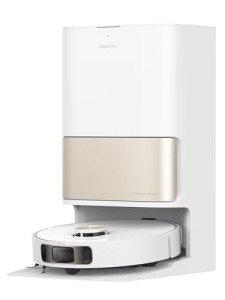Understanding Robot Vacuum Cleaner Prices: A Comprehensive Guide
Recently, robot vacuum cleaners have changed the way people clean their homes. Their ease of usage, convenience, and advanced technology have made them increasingly popular. However, with a wide variety of designs and functions readily available, prospective buyers typically find themselves asking a vital concern: What should I expect to pay for a robot vacuum cleaner? This article intends to clarify the expenses connected with robot vacuum, elements that influence their prices, and pointers for finding the best device for your budget.
The Price Range of Robot Vacuum Cleaners
Robot vacuum cleaners can vary extensively in price. Here, we break down the normal price variety for various classifications:
| Category | Price Range | Description |
|---|---|---|
| Entry-Level | ₤ 100 - ₤ 250 | Fundamental functions, ideal for little spaces, minimal smart innovation. |
| Mid-Range | ₤ 250 - ₤ 500 | Boosted cleaning capabilities, much better navigation, some smart features. |
| High-End | ₤ 500 - ₤ 1,000+ | Advanced mapping, effective suction, web connectivity, and app integration. |
Entry-Level Models
Low-priced robot vacuums are ideal for those who require a fundamental cleaning tool without luxury features. They typically manage difficult floors well however might have a hard time with carpets and are normally less resilient.
Mid-Range Models
These vacuums often come equipped with better suction power and more intelligent navigation systems, making them appropriate for bigger homes with mixed flooring. Lots of designs in this variety deal Wi-Fi connection and mobile phone control.
High-End Models
High-end robot vacuums are created for major cleaning lovers. They typically offer sophisticated mapping innovation, effective suction, and built-in cameras for boosted navigation. Furthermore, numerous high-end designs permit vacuuming on a schedule and even have the ability to clear their dust bins instantly.
Elements Affecting Robot Vacuum Prices
Understanding the aspects that can influence the price of a robot vacuum can assist customers make more educated acquiring choices. The following list describes some crucial features that can affect price:
- Brand Reputation: Established brand names normally bring a higher cost due to their reputation and reputable client support.
Cleaning Technology:
- Suction Power: More effective models will be more expensive.
- Navigation Systems: Advanced designs with much better obstacle detection and mapping capabilities cost more.
- Smart Features: Models that offer connectivity to apps, voice control compatibility, and advanced scheduling choices tend to be priced greater.
- Battery Life: Longer-lasting batteries normally lead to a higher price, as they allow the vacuum to tidy bigger areas without requiring to recharge.
- Dustbin Size: Larger dustbins can be more hassle-free for consumers, promoting a greater price point.
- Extra Features: Some vacuums use mopping capabilities, self-cleaning functions, and high-efficiency filters, which can increase their price.
Budget vs. Features: What to Consider
When buying a robot vacuum, it's important to weigh your budget against the functions you most desire. Here are a number of factors to consider to assist you make an informed choice:
1. Assess Your Home's Needs
- Size of Space: Larger homes might gain from advanced vacuums that can cover more ground without frequent recharging.
- Floor Types: If your home consists of a mix of carpet and tough floors, select a vacuum developed for both.
2. Determine Desired Features
- Decide which features are vital for you, such as scheduling, app connectivity, and cleaning modes.
3. Price vs. Durability
- While a higher financial investment can yield longer-lasting designs, it's worth considering lower-cost choices if you're uncertain about long-lasting usage.
Frequently Asked Questions (FAQs)
Q1: Are robot vacuums worth the investment?
A1: If you lead a hectic way of life or have movement issues, a robot vacuum can conserve significant time and effort in cleaning, making them a rewarding investment.
Q2: How often should I change a robot vacuum?
A2: Depending on the model and usage, a robot vacuum typically lasts between 3 to 5 years. High-end models might last longer with appropriate maintenance.
Q3: Can a robot vacuum entirely replace a traditional vacuum?
A3: While robot vacuums effectively manage everyday cleaning, they might not change conventional vacuums for deep cleaning, especially in multi-level homes or locations needing substantial care.
Q4: What is the typical lifespan of a robot vacuum?
A4: The life-span of robot vacuums varies by model, however many last in between 3-5 years with regular upkeep, like dustbin emptying and filter modifications.
Q5: Do robot vacuums work on carpets?
A5: Yes, but the efficiency will depend on the design. Higher-priced designs generally have better suction power to tidy carpets efficiently.
The market for robot vacuum is diverse, with designs to fit various budget plans and cleaning needs. Whether customers are looking for a fundamental cleaning tool or an innovative gadget equipped with many smart functions, comprehending the price ranges and elements affecting costs is important. With best robot vacuum under 200 of specific needs and monetary restraints, possible buyers can find a robot vacuum that will enhance their cleaning routine and provide long-lasting satisfaction.

